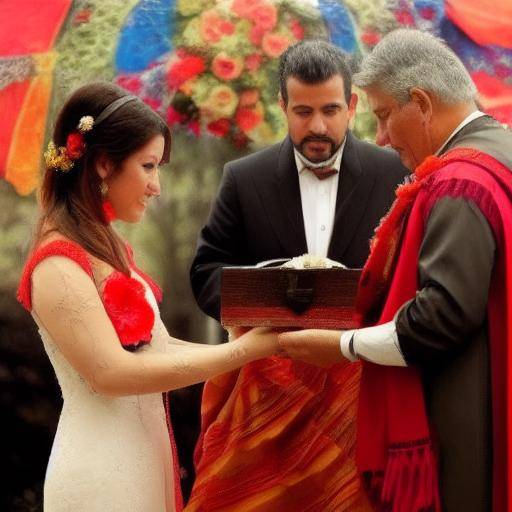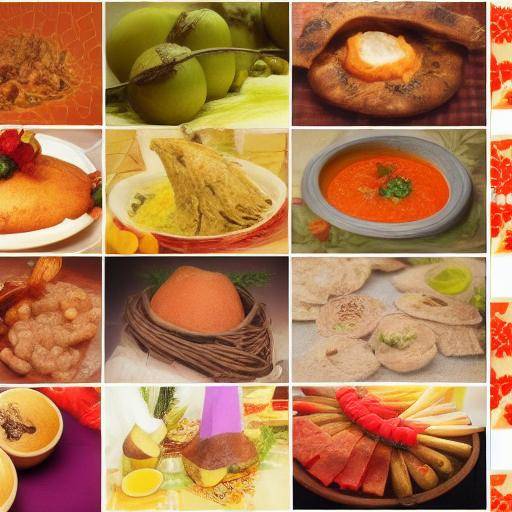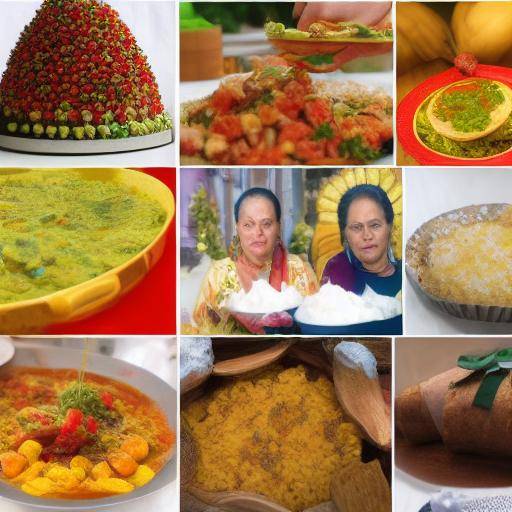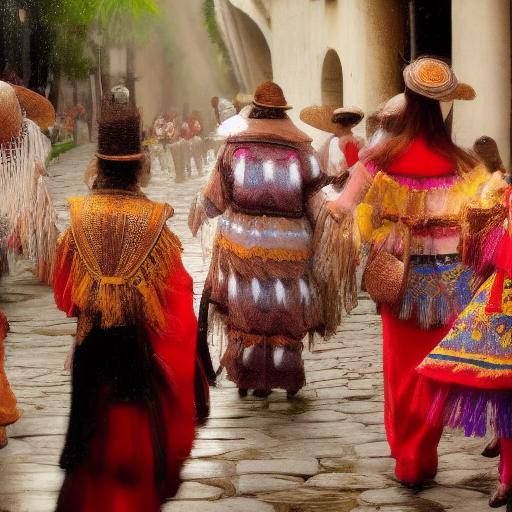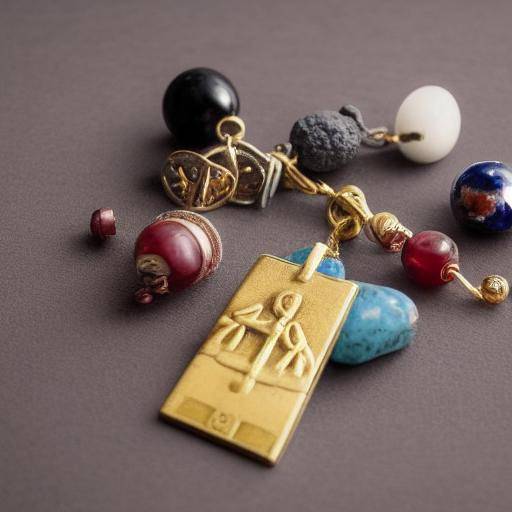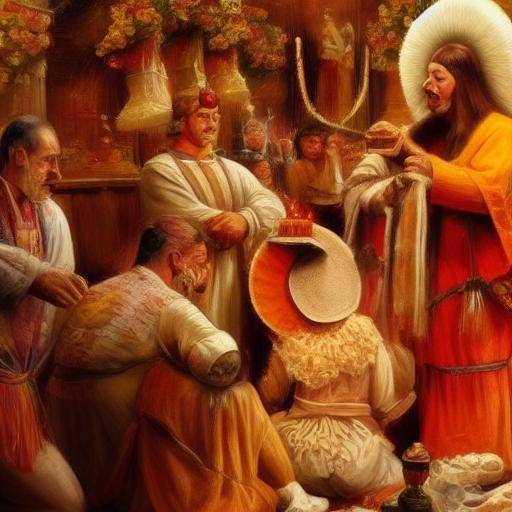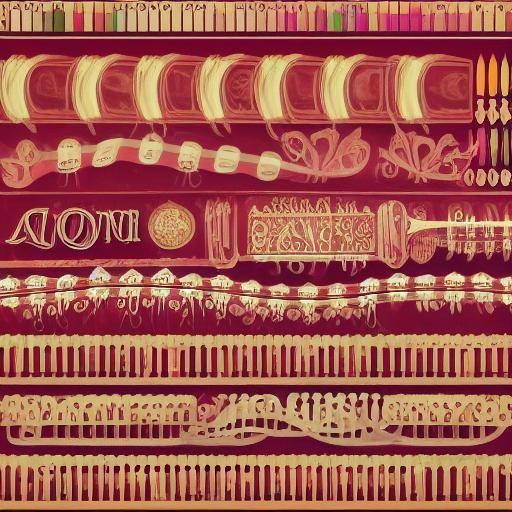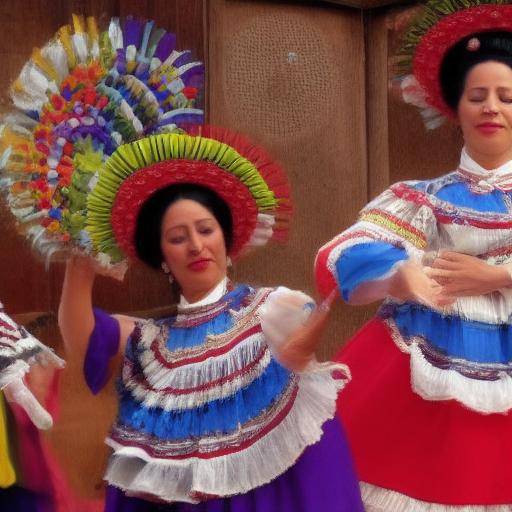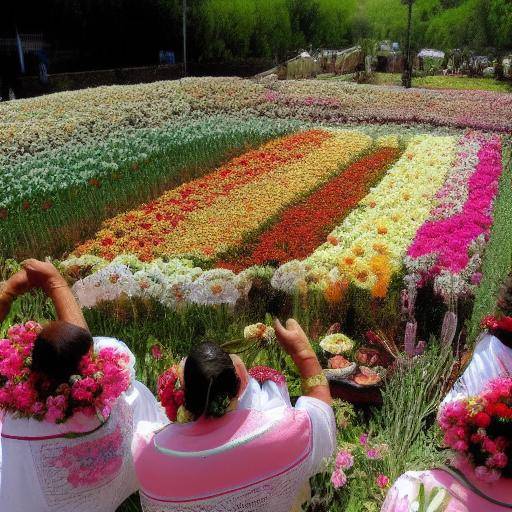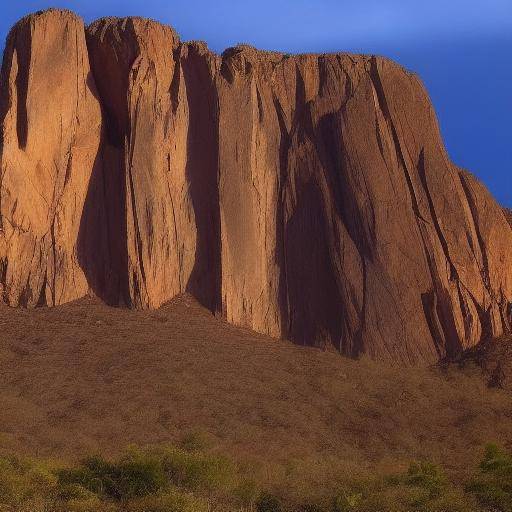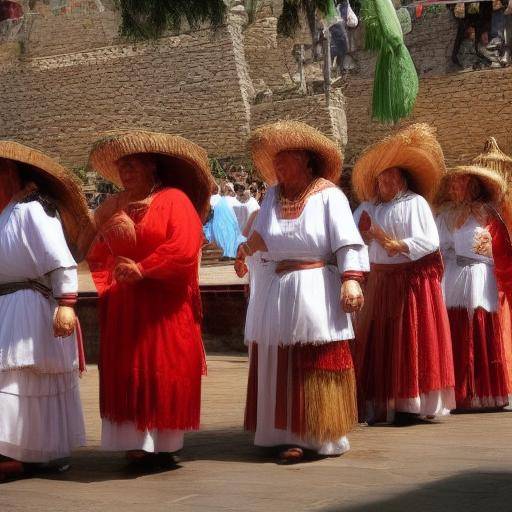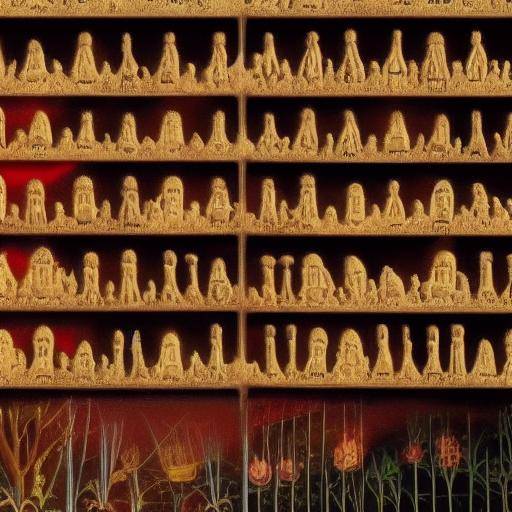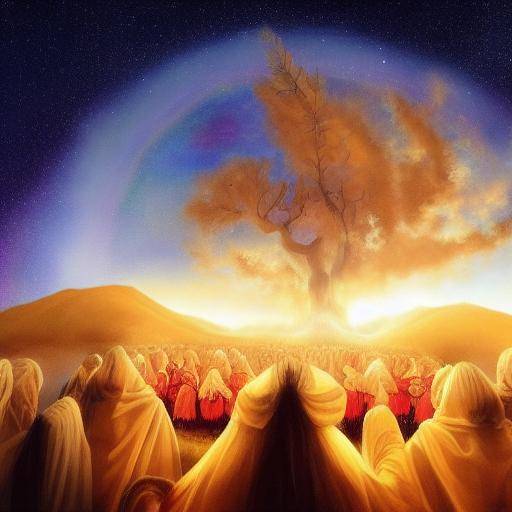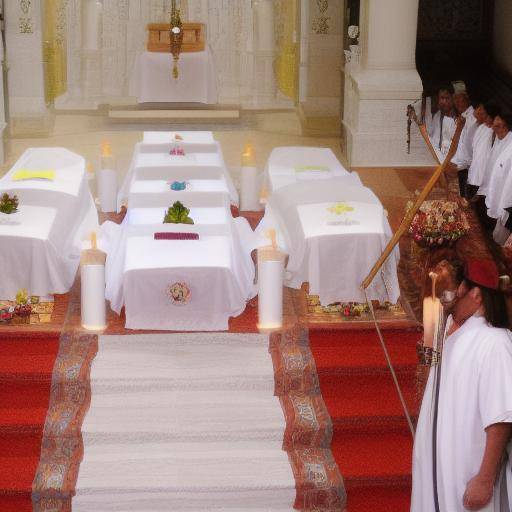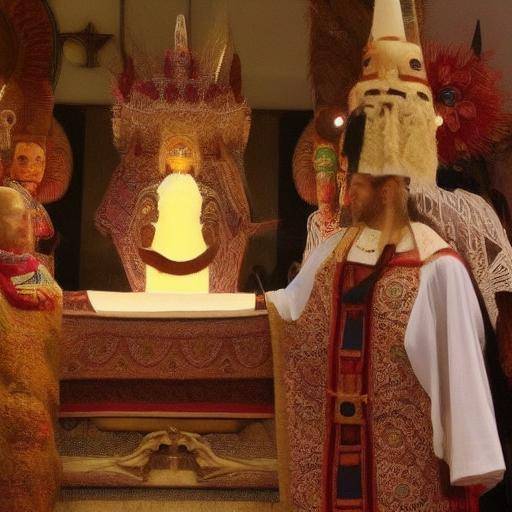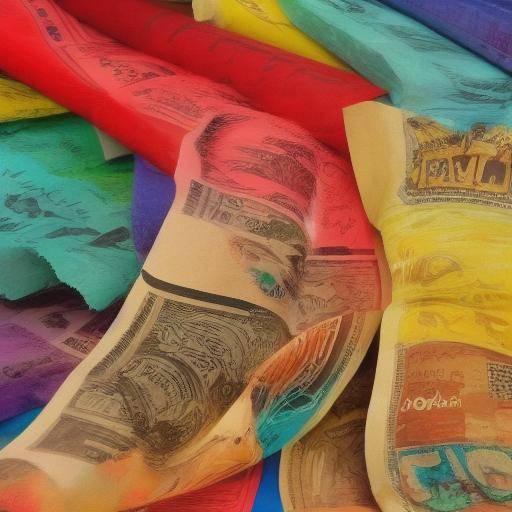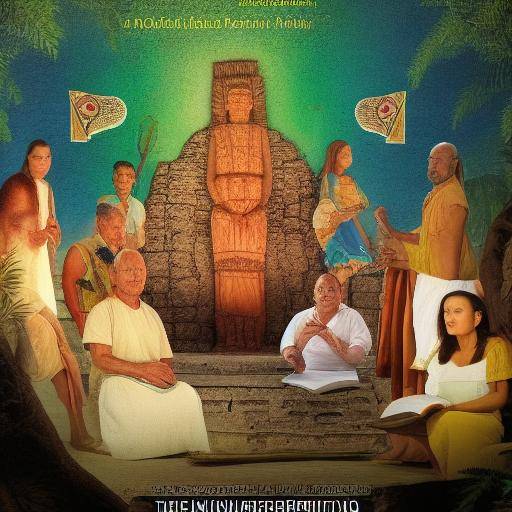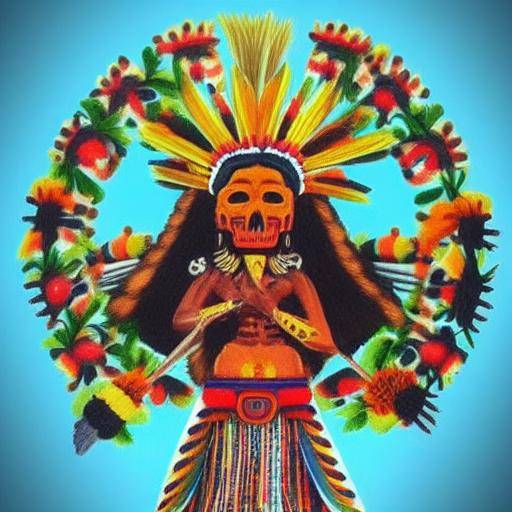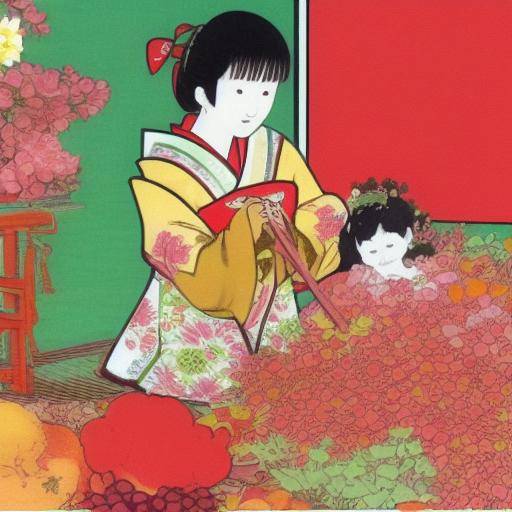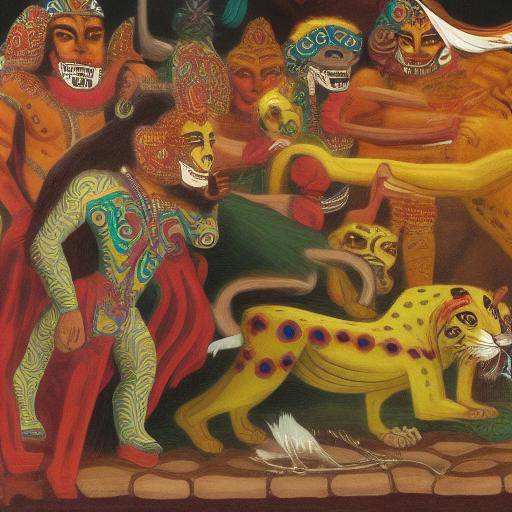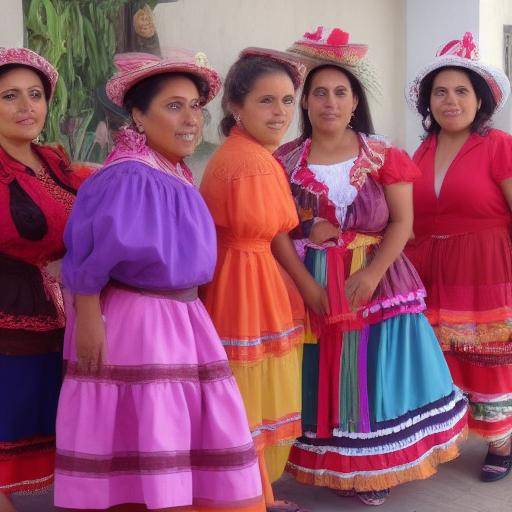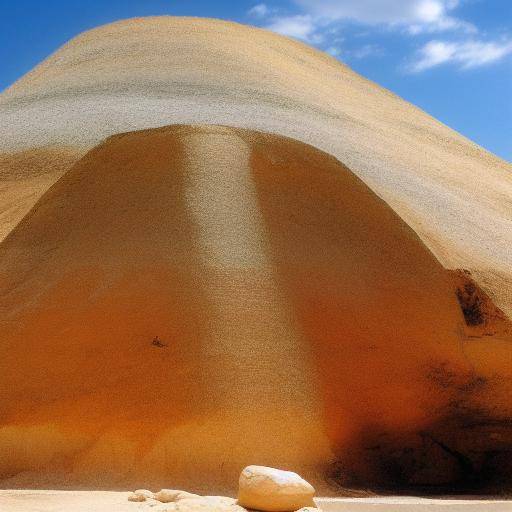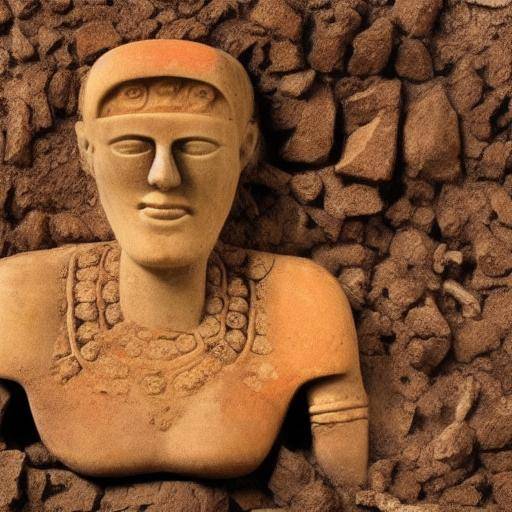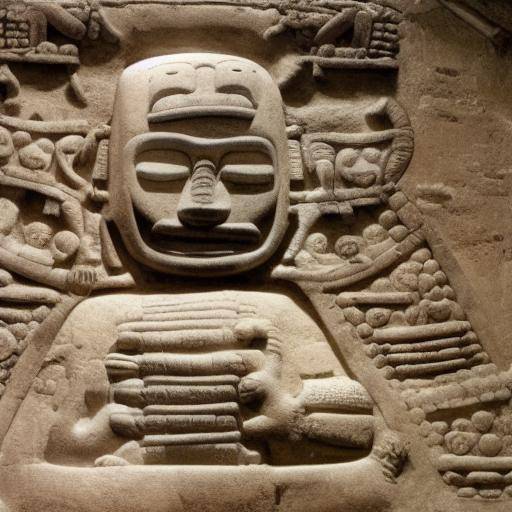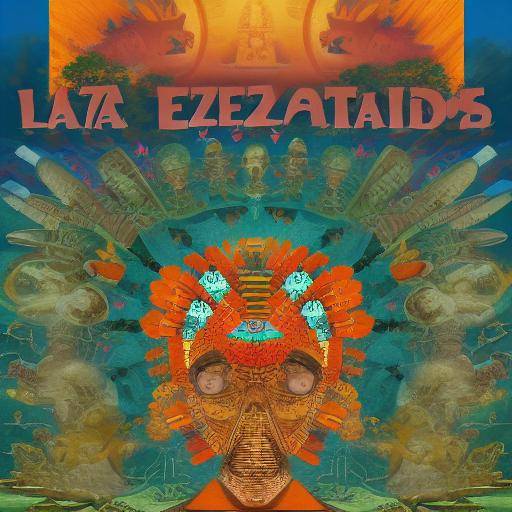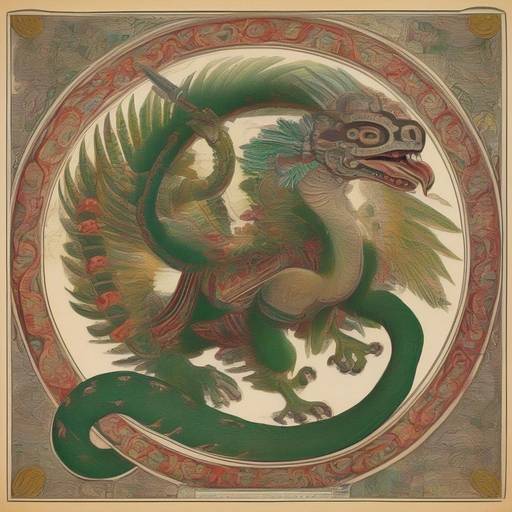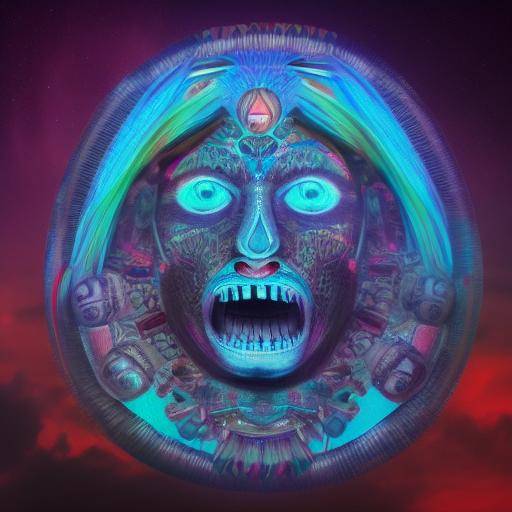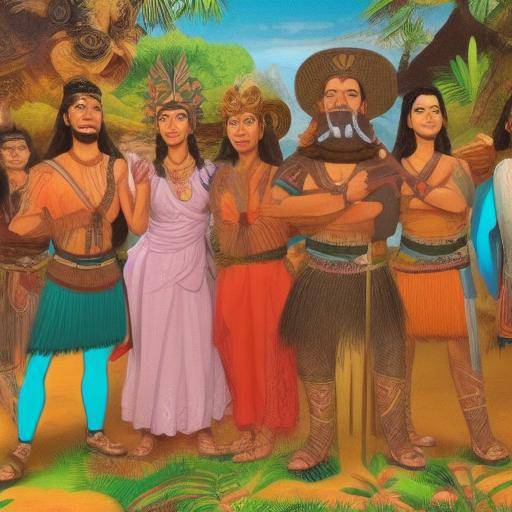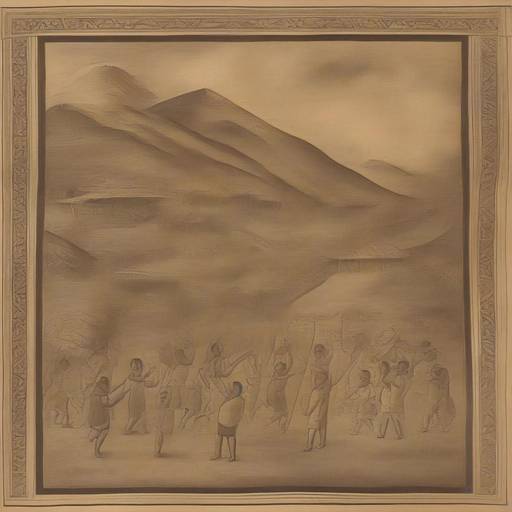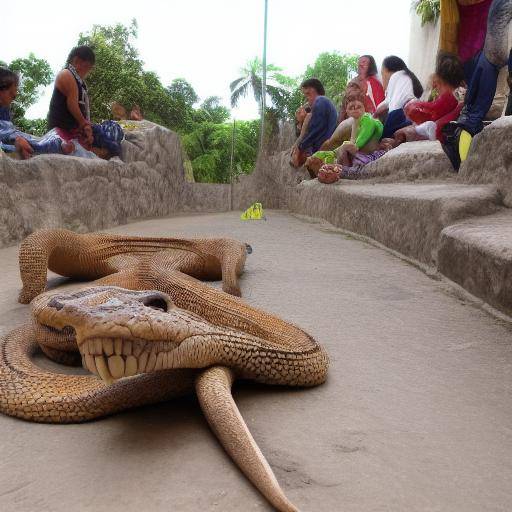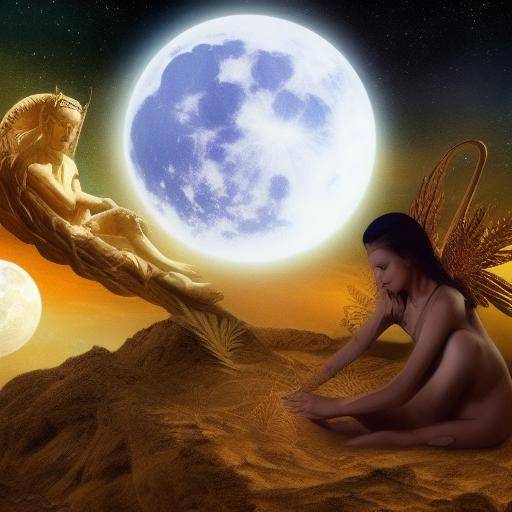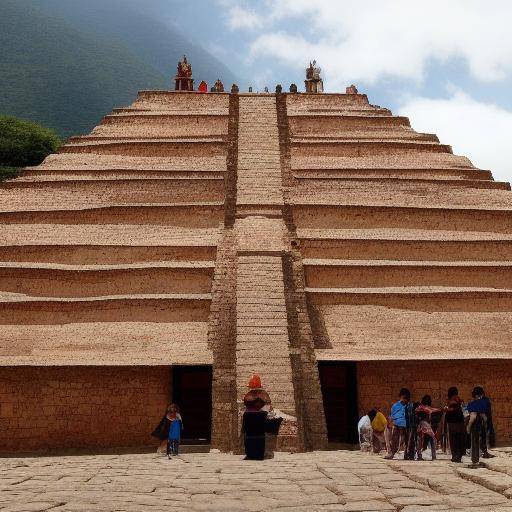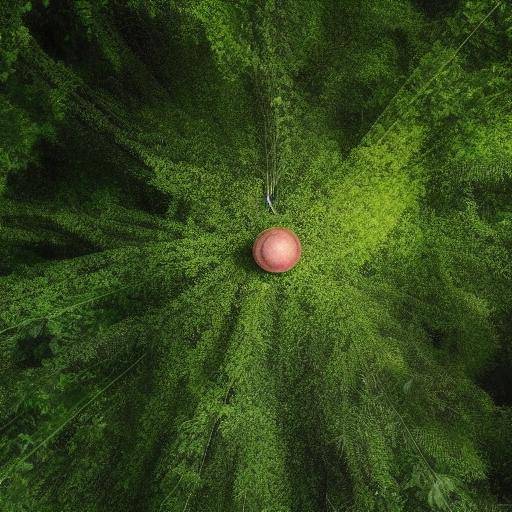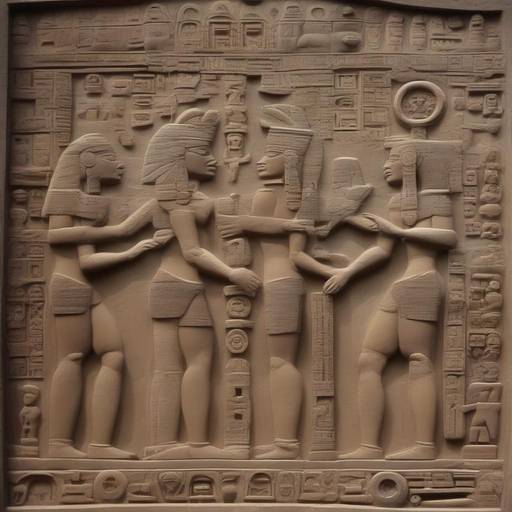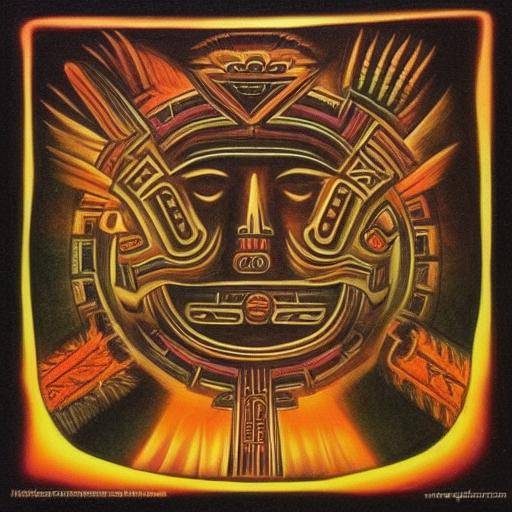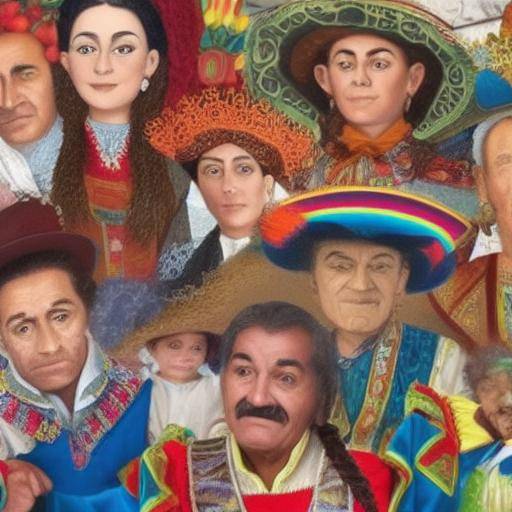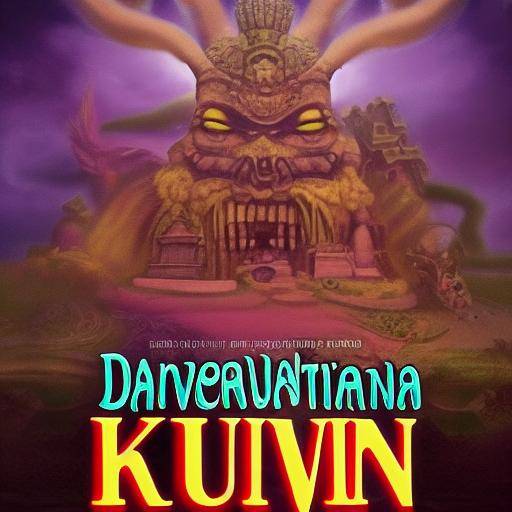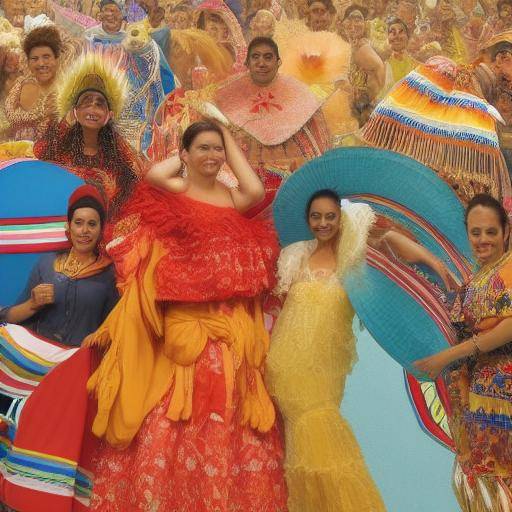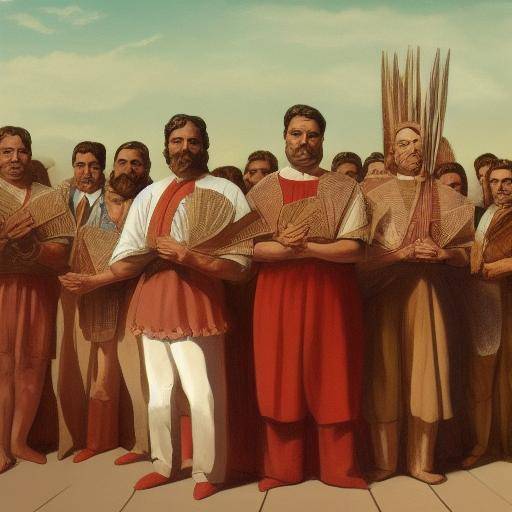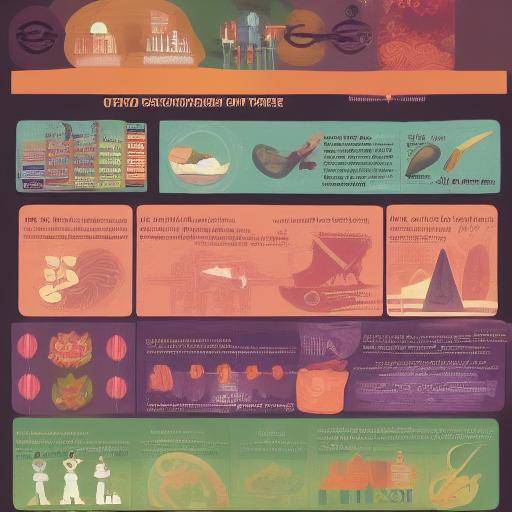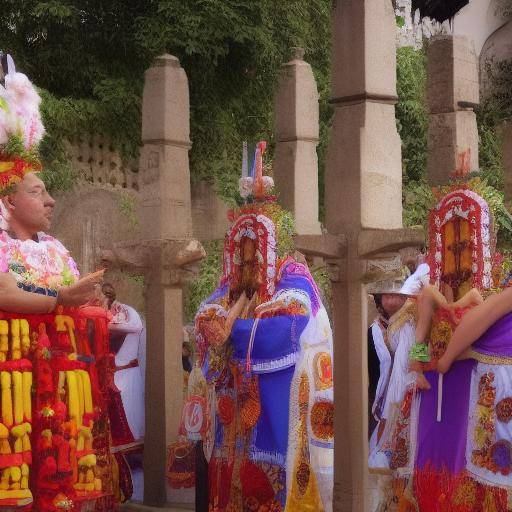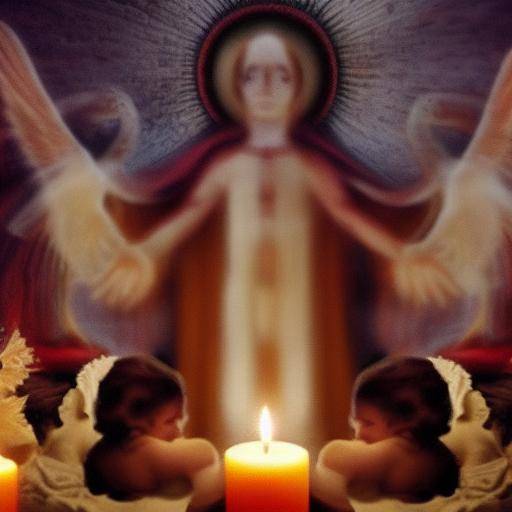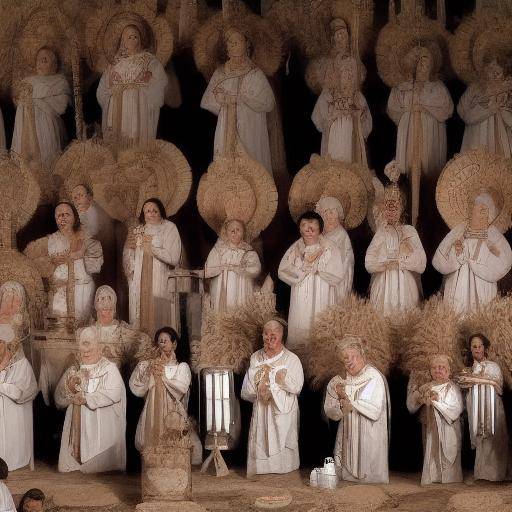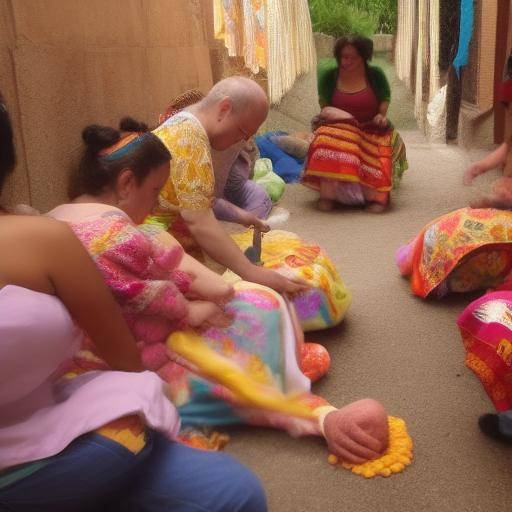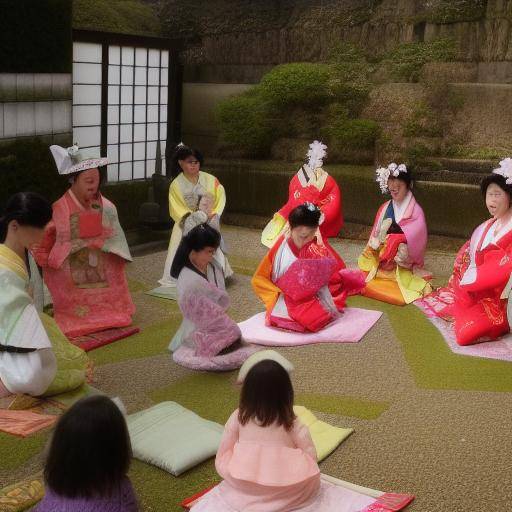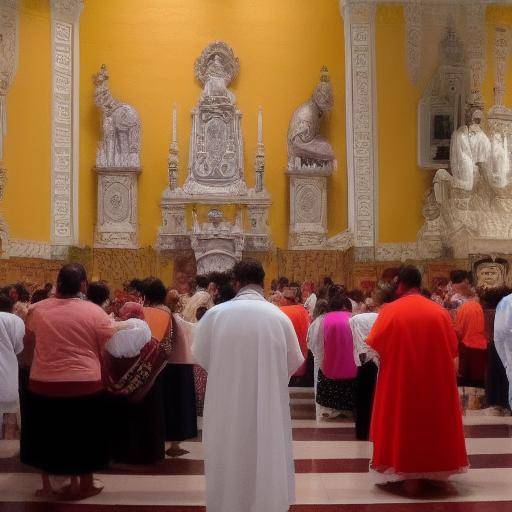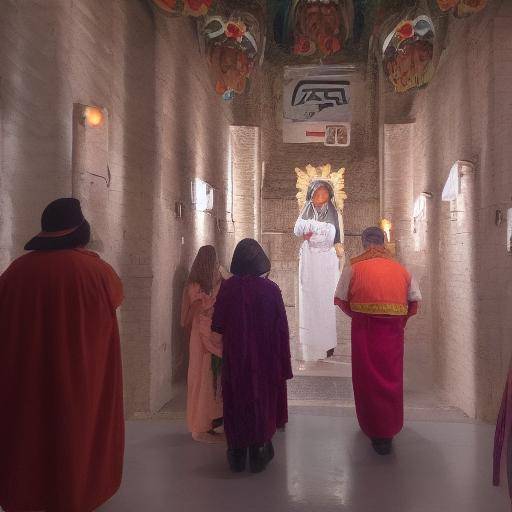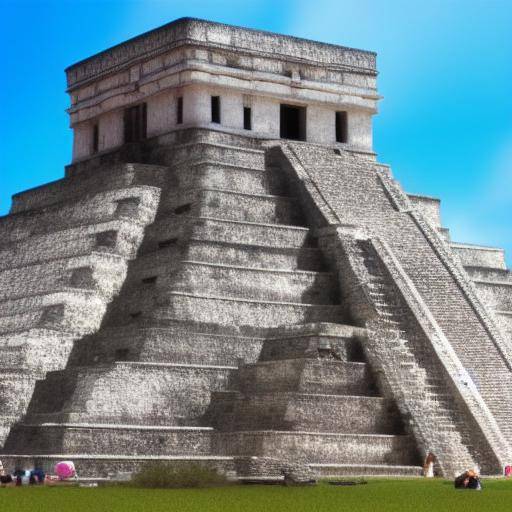
Introduction
The ancient Mayas developed a fascinating calendary system that not only reflected time and seasons, but was also intertwined with their pre-Columbian myths and loaded with transcendental meanings. In this article, we will explore the mysterious world of the Mayan calendar, unraveling its deep myths and meanings. From its origin to its influence on contemporary culture, we will discover the richness of this ancient tradition. If you want to understand the essence of the Mayan calendar, its connection to pre-Columbian myths and its lasting meaning, accompany us on this revealing journey.
History and Background
The origins of the Mayan calendar date back thousands of years in the Mesoamerican civilizations, where astrological observation and connection with nature were fundamental. This calendary system, known for its accuracy and complexity, had two main components: the Tzolk'in, which consisted of 260 days, and the Haab, composed of 365 days. Through these cycles, the Mayas not only marked time, but also incorporated deep pre-Columbian myths that influenced all aspects of life.
Pre-Columbian myths
The pre-Columbian myths that were part of the Mayan calendar were intrinsically intertwined with their worldview and spiritual beliefs. For the Mayas, time and space were imbued with divine meanings, and their myths offered narratives about creation, the underground world, the gods and the human destiny. These legends and myths, orally transmitted from generation to generation, permeated daily life and ceremonial rituals, shaping their understanding of the universe.
Meaning
The Mayan calendar was not only a temporary tool, but also with deep meanings in the context of Mayan cosmology. The interconnection between the calendar, pre-Columbian myths and ritual ceremonies reveals how Mayas saw their existence as an indivisible part of a major cosmic order, where time, nature and the divine interwoven. Even today, the study of the Mayan calendar and its meanings continues to raise a deep interest in the disciplines of archaeology, anthropology and spirituality.
Detailed Analysis
The influence of the Mayan calendar and its pre-Columbian myths transcends the mere historical sphere, reaching contemporary aspects such as astrology, spirituality and the consciousness of time. These cultural legacies have not only endured in collective memory, but have also sparked debate and analysis in academic and esoteric fields.
Contemporary applications
The interest in the Mayan calendar has now been revitalized, with people seeking to understand their own life cycles, explore the Mayan astrology and find inspiration in pre-Columbian myths. This rebirth of interest has led to research on its current applications, such as Carl Jung's analytical psychology and contemporary spiritual practices that adopt elements of the Mayan cosmovision.
Perspectives and Views
The interpretation of the Mayan calendar and its meanings remains the subject of debates and various perspectives. While some scholars focus on their historical and archaeological context, others find in it a source of timeless wisdom that can enrich human understanding. These different perspectives, coupled with popular and esoteric beliefs, form an enriching panorama that enriches the understanding of the Mayan calendar from multiple angles.
Benefits and Challenges
While the Mayan calendar has provided profound perceptions of time and spirituality, it has also faced criticism and challenges in its interpretation. Some questions focus on the veracity of contemporary interpretations and the misappropriation of their symbolism. However, its lasting legacy continues to inspire many people and communities around the world.
Comprehensive review
The Mayan calendar and its pre-Columbian myths offer a deep understanding of the connection between the human being and the cosmos. Exploring their practical applications and their philosophical and spiritual implications gives us a kaleidoscope of perspectives and reflections that enrich our understanding of the world we live in.
Comparative analysis
Compare the Mayan calendar, its pre-Columbian myths and its meaning with other Calendary traditions and systems allow us to appreciate both its uniqueness and its universal aspects. Throughout the centuries, different cultures have employed complex temporal systems and rich mythologies, and when comparing them, we can identify common patterns and revealing contrasts.
Practical Tips and Accessible Recommendations
If you want to explore the world of the Mayan calendar and its most profound meanings, here are some practical tips to enrich your experience:
- Immerse yourself in reading academic and literary texts that address the issue from different perspectives.
- It attends conferences, talks or events related to Mayan astrology and pre-Columbian myths.
- Find spaces for reflection and spiritual practices that incorporate elements of the Mayan cosmovision.
Conclusions and FAQs
In short, the Mayan calendar, its pre-Columbian myths and their meaning offer a treasure of knowledge and reflections that transcend time and space. In understanding his legacy, we not only honor the wisdom of the ancient Mayas, but also cultivate our own connection with nature and the transcendental.
Frequently asked questions
**1. What is the importance of the Mayan calendar today?**The Mayan calendar has awakened a renewed interest due to its accuracy and its connection to astrology and spirituality.
**2. How do pre-Columbian myths relate to contemporary beliefs?**Pre-Columbian myths offer timeless narratives that still resonate in human psychology and current spiritual practices.
**3. Are there daily practices influenced by the Mayan calendar today?**Some people incorporate elements of the Mayan calendar into their spiritual rituals and practices, seeking to align with their cycles and meanings.
**4. How has the interpretation of the Mayan calendar evolved over time?**The interpretation of the Mayan calendar has experienced significant changes, from its historical applications to its contemporary recontextualizations.
**5. What recommendations do experts offer to better understand the Mayan calendar?**Experts suggest entering academic texts, participating in related events and exploring spiritual practices that integrate their teachings.
**6. What is the lasting legacy of the Mayan calendar and its meanings?**The legacy of the Mayan calendar lies in its ability to inspire reflections on the interconnection between humanity, nature and the divine.
Conclusion
The fascinating universe of the Mayan calendar, its pre-Columbian myths and its meanings invites us to explore the depths of the Mayan worldview and to reflect on our own relationship with time, nature and spirituality. As we enter this enigmatic legacy, we discover that his teachings endure as a beacon of wisdom that illuminates our understanding of the world.
Mayan beliefs, history and traditions remain a source of inspiration and learning for present and future generations, constantly reminding us of the wealth and diversity of human cultures.
With this article, we have explored in detail the Mayan calendar, its pre-Columbian myths and its transcendental significance. We hope that this immersion in the vast cosmos of Mayan culture has enriched your understanding and enlivened your interest in these ancestral and lasting teachings.

